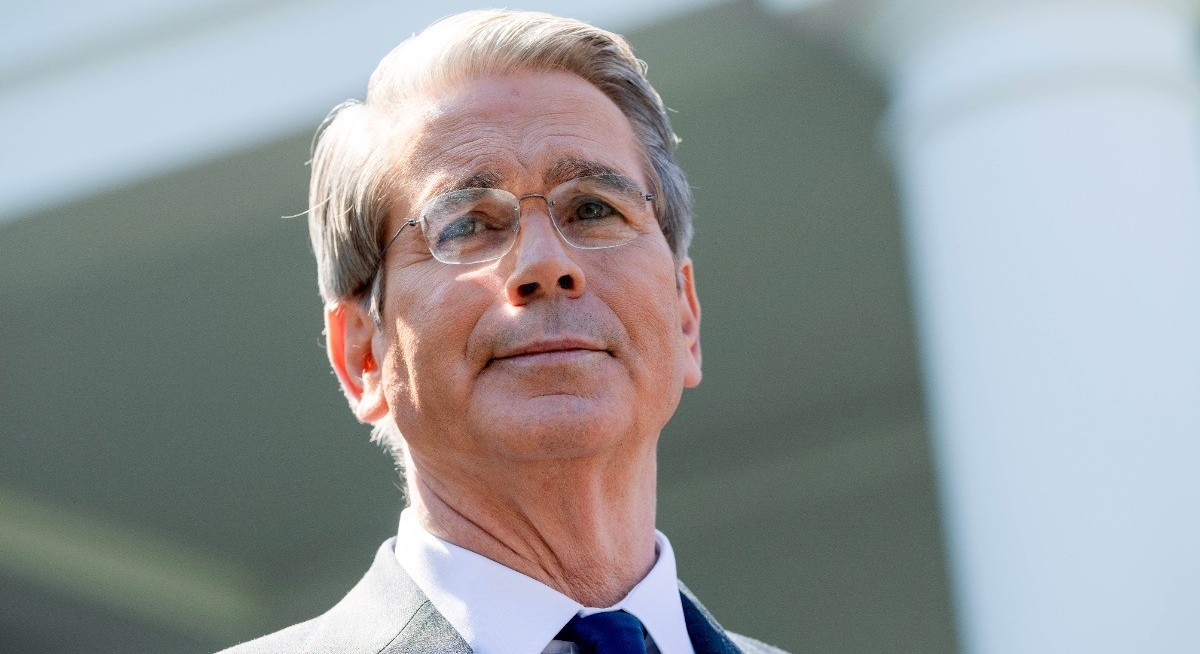(Oct 29): US Treasury Secretary Scott Bessent called on Japan’s new government to give the nation’s central bank the space to combat inflation — marking a stark contrast with his message at home for the US Federal Reserve (Fed).
“The government’s willingness to allow the Bank of Japan (BOJ) policy space will be key to anchoring inflation expectations and avoiding excess exchange rate volatility,” Bessent said in a social media post on Wednesday.
Newly installed Japanese Prime Minister Sanae Takaichi has been an advocate of low interest rates, though has refrained from commenting directly on BOJ policy more recently. Since taking office last week, she has expressed concern about the effects of inflation and pledged steps to support households contending with higher costs of living.
Bessent’s comment came a day before the BOJ’s next policy meeting, where it’s widely expected to hold its benchmark rate steady. Most economists forecast an interest-rate hike by January.
Pricing for a rate hike Thursday increased after Bessent’s comments, rising to about 20% in the overnight swaps market, from around 10% a day earlier.
“I don’t expect a hike tomorrow, but I see a higher chance of a December rate hike given his comments,” said Yoshimasa Maruyama, the chief market economist of SMBC Nikko Securities. “His remarks will probably make the BOJ less likely to act tomorrow (Thursday) because Bessent would be seen as a key driver of the action.”
See also: Nidec faces delisting risk as Tokyo exchange ramps up scrutiny
The yen strengthened after Bessent’s post, rising to around 151.54 to the dollar from 152.12 when the post was published. The currency remains will below its 10-year average of 122.45, making Japan’s exports relatively more competitive, and the US Treasury has kept Japan on a list for enhanced monitoring over its exchange-rate practices.
‘Becoming harder’
“I sense an intention to correct the yen’s depreciation,” on Bessent’s part, said Akira Moroga, the chief market strategist of Aozora Bank. That “makes it feel like it’s becoming harder to push for further yen weakening”, he said.
See also: Japan’s finance minister signals possibility of more govt bond sales
Moroga added that “although rate hike expectations haven’t advanced due to political factors and other issues, I think it’s worth keeping in mind that the probability of a rate hike tomorrow isn’t zero”.
The post came two days after Bessent met with his Japanese counterpart, Minister of Finance Satsuki Katayama, in Tokyo. A Treasury readout from that meeting said the secretary had cited the role of “sound monetary policy formulation and communication in anchoring inflation expectations” and preventing excess exchange rate volatility during the discussions.
On the domestic front, Bessent has regularly spoken about US central bank policy, sometimes in great detail. Last month, he criticised Fed chair Jerome Powell for having “backed up a bit” on easing policy, and said that interest rates “need to come down”. Fed policymakers have cited concerns about the inflationary impact of US President Donald Trump’s tariff hikes in adopting a cautious approach towards reducing rates.
Pressure on Powell
Speaking on Fox Business on Sept 24, Bessent said he was “surprised” Powell hadn’t signalled a destination by year end of “at least” 100 to 150 basis points of reductions. The US central bank had cut by 25 basis points earlier that month, and is widely expected to conduct another such reduction on Wednesday.
As for the BOJ, Bessent previously drew attention to it in August, when he described it as being “behind the curve” in the fight against inflation. He’s since softened his tones regarding Japan’s monetary policy, saying earlier this month that the yen will settle if the BOJ continues to take appropriate measures.
“We think that Bessent will eventually get his way, and that the yen will rebound as the monetary policy gap between the US and Japan gradually shrinks,” Jonas Goltermann, the deputy chief markets economist of Capital Economics, wrote in a note to clients on Tuesday.
Uploaded by Tham Yek Lee




